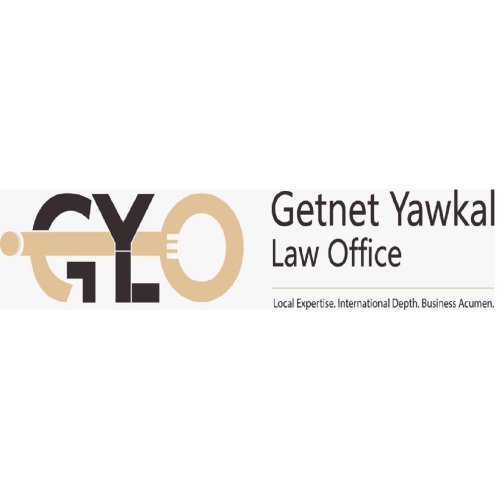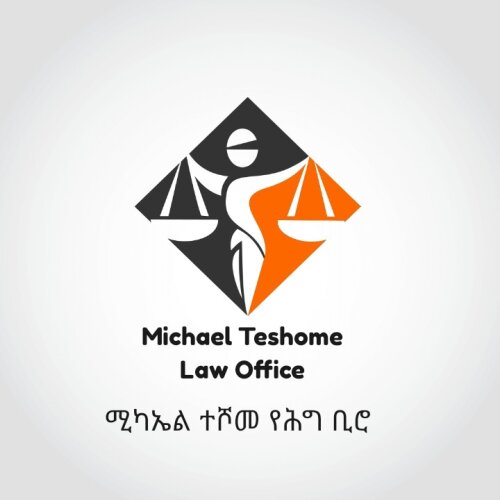Best Business Lawyers in Ethiopia
Share your needs with us, get contacted by law firms.
Free. Takes 2 min.
Or refine your search by selecting a city:
List of the best lawyers in Ethiopia
About Business Law in Ethiopia
Business law in Ethiopia encompasses various legal disciplines that govern commercial entities and transactions within the country. The business landscape in Ethiopia is shaped by a mix of traditional practices and modern regulations. With a focus on growth, the Ethiopian government encourages foreign investment and entrepreneurship, facilitated by policies aimed at boosting different sectors including agriculture, manufacturing, and technology. Development in infrastructure and rising urbanization also contribute to a climate ripe for business ventures.
Why You May Need a Lawyer
There are numerous scenarios where seeking legal advice in Ethiopia's business sector becomes crucial. Entrepreneurs might need assistance in forming a new company or understanding the regulatory environment. Businesses may require legal support for contract negotiations, intellectual property protection, or compliance with tax and employment laws. Furthermore, disputes may arise that necessitate representation or mediation, such as partnerships dissolving or issues with suppliers or clients. Legal counsel becomes essential to navigate these environments effectively, ensuring legal compliance and protection of business interests.
Local Laws Overview
Ethiopian business law incorporates various codes and regulations that businesses must follow. The Commercial Code of Ethiopia forms the cornerstone of business legislation, covering areas such as company formation, business operations, and commercial obligations. Investment laws regulate foreign and domestic businesses, aiming to promote economic growth. Taxation in Ethiopia follows specific mandates under the Income Tax Proclamation, and labor laws stipulate employer-employee relations, including contracts and dispute resolution. Intellectual property rights are protected under legislation to preserve the interests of creators and businesses alike.
Frequently Asked Questions
What are the types of business entities in Ethiopia?
In Ethiopia, businesses can be established as sole proprietorships, partnerships, joint ventures, private or public limited companies, and branches of foreign companies.
How can a foreign investor start a business in Ethiopia?
Foreign investors must register with the Ethiopian Investment Commission (EIC) and obtain the necessary licenses and permits, including an investment permit for specific sectors.
What is the process of company registration in Ethiopia?
The process involves reserving a company name, drafting legal documents like the memorandum of association, and registering with the Ministry of Trade and Industry.
Are there any restrictions on foreign ownership of Ethiopian businesses?
Yes, certain sectors, such as telecommunications and finance, have restrictions or partial limitations on foreign ownership to protect national interests.
What are the tax obligations for businesses in Ethiopia?
Businesses must comply with the Income Tax Proclamation, which includes paying corporate income tax, value-added tax (VAT), and other applicable duties.
How does one handle labor disputes in Ethiopia?
Labor disputes can often be settled through mediation, conciliation, or arbitration. Legal action may be taken if these methods fail.
Is intellectual property protection strong in Ethiopia?
Ethiopia has laws in place to protect intellectual property, including patents, trademarks, and copyrights, which businesses can register to safeguard their innovations.
What are the compliance requirements for businesses in Ethiopia?
Businesses must adhere to the Commercial Code, pay taxes regularly, and follow employment and environmental regulations to operate legally.
Can foreigners own land in Ethiopia?
Foreigners cannot own land in Ethiopia; it can only be leased. Land ownership is reserved for Ethiopian citizens and the government.
What are the common legal pitfalls in Ethiopian business practices?
Common pitfalls include not understanding the regulatory environment, mismanagement of contracts, and failure to comply with tax regulations.
Additional Resources
Those seeking more information or legal assistance can reach out to the Ethiopian Investment Commission for guidance on investment opportunities and regulations. The Ministry of Trade and Industry provides information on business registration and compliance. Local law firms specialized in business law can also offer tailored legal advice. Additionally, the Ethiopian Chamber of Commerce is a valuable resource for networking and business support.
Next Steps
If you require legal assistance for your business in Ethiopia, begin by identifying your specific needs: company formation, contract negotiations, compliance checks, or dispute resolution. Consult with a legal professional who specializes in Ethiopian business law for personalized guidance. To ensure smoother processes, maintain proper documentation of all business transactions and decisions. Engage with local and governmental bodies to stay informed about changes in business regulations and practices.
Lawzana helps you find the best lawyers and law firms in Ethiopia through a curated and pre-screened list of qualified legal professionals. Our platform offers rankings and detailed profiles of attorneys and law firms, allowing you to compare based on practice areas, including Business, experience, and client feedback.
Each profile includes a description of the firm's areas of practice, client reviews, team members and partners, year of establishment, spoken languages, office locations, contact information, social media presence, and any published articles or resources. Most firms on our platform speak English and are experienced in both local and international legal matters.
Get a quote from top-rated law firms in Ethiopia — quickly, securely, and without unnecessary hassle.
Disclaimer:
The information provided on this page is for general informational purposes only and does not constitute legal advice. While we strive to ensure the accuracy and relevance of the content, legal information may change over time, and interpretations of the law can vary. You should always consult with a qualified legal professional for advice specific to your situation.
We disclaim all liability for actions taken or not taken based on the content of this page. If you believe any information is incorrect or outdated, please contact us, and we will review and update it where appropriate.
Browse business law firms by service in Ethiopia
Ethiopia Attorneys in related practice areas.
Browse business law firms by city in Ethiopia
Refine your search by selecting a city.

















